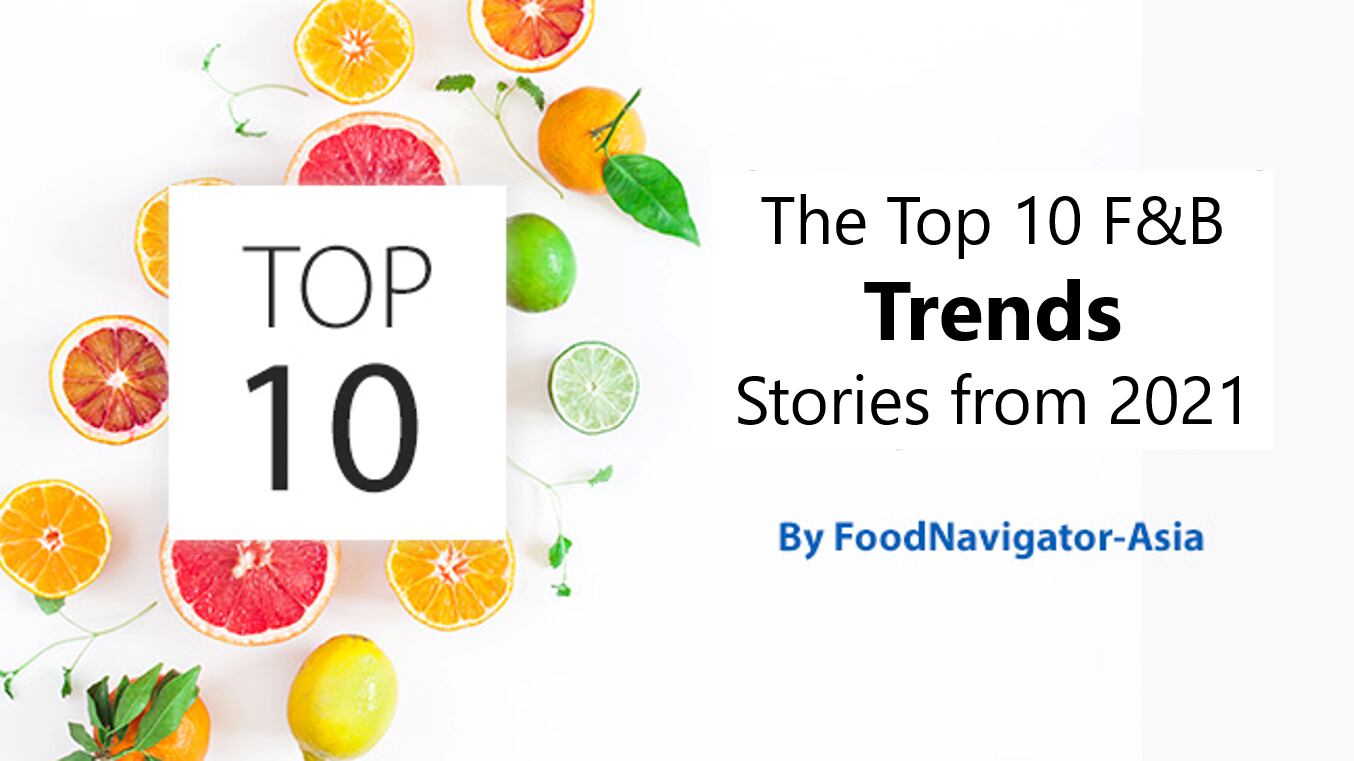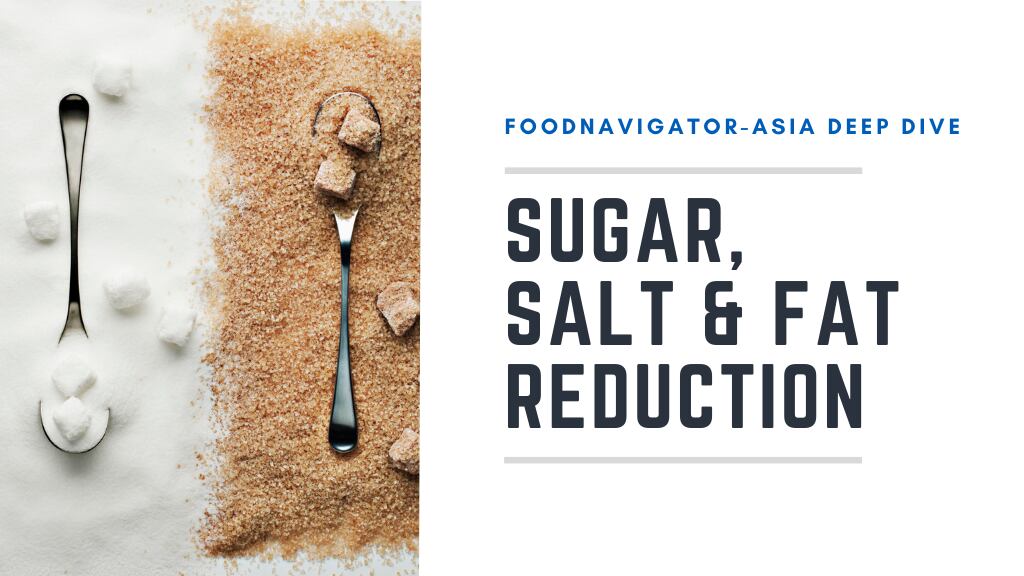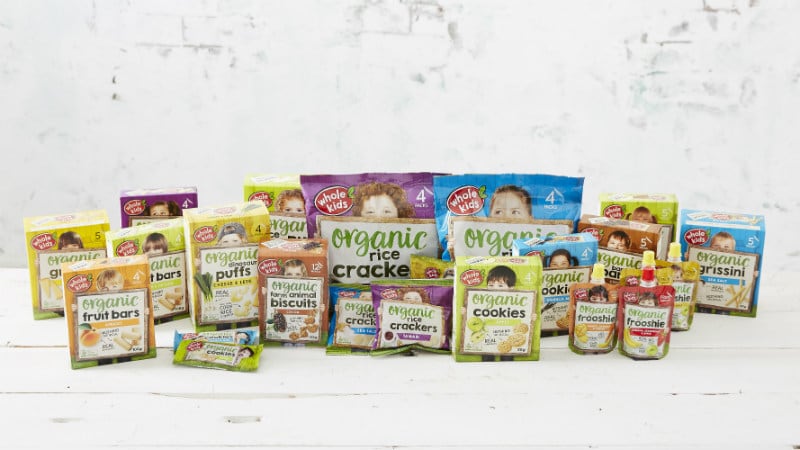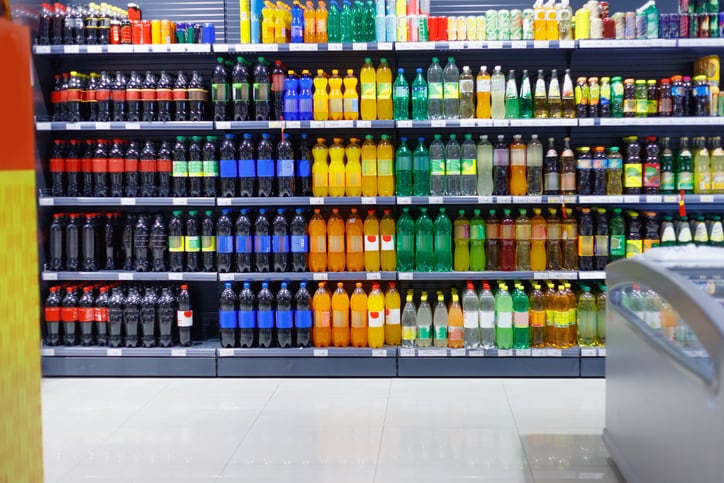WATCH: ‘High quality, no alcohol’: UAE’s first non-alcoholic online drink marketplace Drink Dry takes first foray into supermarkets
Trend: Low-to-no alcoholThe UAE’s first premium non-alcoholic drinks online marketplace, Drink Dry, entered the retail space with its first partner, supermarket chain Choithrams, with the firm exploiting a gap in the market for sophisticated booze-free offerings.
The company started off as an e-commerce store in December 2020, selling non-alcoholic beer, sparkling wine, still wine, and booze-free spirits, mainly imported from Europe.
The partnership saw Drink Dry retail its full range of non-alcoholic drinks across five Choithrams stores in Dubai. Choithrams has over 40 stores in the UAE.
Commenting on this collaboration, Kirti Meghnani, head of retail procurement at Choithrams, said: “At Choithrams, we follow consumer trends very closely and it has become evident to us during 2020 that there is a shift in what consumers are looking to buy in the beverage category. We are delighted to work with Drink Dry and to be able to offer our valued customers the best that the non-alcohol drinks category has to offer in the UAE.”
‘Healthiest ice cream on the planet’: India’s Habbit launches zero-sugar, low-fat, minimum-calorie Wise Creams
Trend: Healthier product innovationIndia-based Habbit Health and Nutrition launched a range of what it claims to be ‘the healthiest ice creams on the planet’ dubbed Wise Creams, containing zero sugar, low fat content and no more than 50 calories per serving.
According to Habbit Founder and CEO Dhruv Bhushan, the technology behind the development of the Wise Creams is ‘light years ahead’ of the industry, having managed to bring calories down from the general 250kcal or 260kcal per serving to between 30 to 50 kcal.
“This is the healthiest ice cream ever made on the planet, with less calories than half an apple and far less than a cookie, but tasting exactly the same as regular ice cream,” Bhushan told FoodNavigator-Asia.
“Ice cream recipes have remained more or less the same for many centuries because it really is something of a rocket science, from managing viscosity to melting points to textures and most importantly taste."
New year, new category: Nestle Australia makes first foray into better-for-you ‘adult social beverages’ with upcycled cascara drink
Trend: Healthier product innovation
Nestle Australia kickstarted the new year by pioneering a whole new better-for-you beverage option dubbed NESCAFE NATIV Cascara, an upcycled coffee berry-based product with a strong Australian native flavours twist and sustainability profile.
This was the firm’s first foray in what it has dubbed a new ‘adult social beverage’ category – owing to the product’s caffeine content but without any alcohol content. Nestle Australia has expressed confidence in the growth potential of this new category after seeing other better-for-you beverages such as kombucha and coconut water experience strong growth in Australia in recent years.
“NESCAFE NATIV Cascara bridges the gap between overly sweet soft drinks and health toting kombucha [so will appeal to] consumers who want a delicious sophisticated drink while still being mindful of their choices,” Nestle Oceania Director of e-Business, Strategy and Marketing Martin Brown told FoodNavigator-Asia.
Nestle Malaysia CEO Exclusive Part II: Plant-based products to be key 2021 focus but ‘will take time’ to reach full potential
Trend: Plant-based innovation
Nestle Malaysia CEO Juan Aranols has outlined the production and marketing strategies for the firm’s venture into the plant-based arena, although he believes it ‘will take time’ for the sector to reach its full potential in Asia.
Nestle Malaysia completed the establishment of a specialised plant-based facility in its Shah Alam plant earlier this year, its first in South East Asia and the only other one in Asia apart from a China-based facility located in Tianjin which just started operations at the end of 2020. According to Aranols, the firm spent around RM150mn (US$37mn) out of a total of RM280mn (US$69.1mn) allocated CAPEX for this year on the facility, dubbed the Plant-Based Meal Solutions (PBMS) manufacturing facility.
The plant-based products are marketed under the Harvest Gourmet brand which already has some recognition in APAC markets like Australia but has not yet entered the Malaysian market, and the plan is to launch plant-based innovations in other product categories too.
“We are mindful that this plant-based category is really at an early stage here, and we will need time to build this and educate consumers,” he told FoodNavigator-Asia.
Hemp in India: ‘Next wave’ of food products expected this year when FSSAI regulations finalised
Trend: Hemp-based development
Hemp regulations set by the Food Safety and Security Authority of India (FSSAI) will be a crucial turning point for the local hemp and cannabis sector, unlocking its potential for use in the ‘next wave’ food and beverage products.
Various large-scale misunderstandings regarding its use as a food item have occurred at a national level in India, such as FSSAI’s granting of licenses for hemp seed products in 2017 being followed by a warning letter to all manufacturers that there were ‘no standards’ for hemp in India at that point, and products were being sold ‘illegally’.
This lack of regulations was acknowledged as a ‘crippling factor’ for the industry and drove hemp sector players such as the Bombay Hemp Company (BOHECO) to work more closely with FSSAI to develop policies and standards.
“We realised that for hemp to thrive as part of the F&B [industry], the regulations needed to work with hemp had to take shape,” BOHECO Co-Founder and Business Development Director Yash Kotak told FoodNavigator-Asia.
‘Biggest dairy breakthrough since pasteurisation’: Aussie firm set to launch high-nutrient, high-digestibility milk products this year
Trend: Healthier product innovation
Australia-based Naturo is set to launch its high-nutrient, high-digestibility fresh milk products processed without pasteurisation, using world-first technology that will also allow for extended shelf life.
According to Naturo Founder and CEO Jeff Hastings, Naturo will be launching a range of nutrient-rich milk products with high digestibility and long shelf-life in March to April this year under the Wholey Milk Company brand.
“We will start with select retail outlets in Queensland first before expanding production and supply nationally, and then internationally in 2022,” Hastings told FoodNavigator-Asia.
‘Many firsts’: India’s Axia Foods to develop world’s first vegan butter and cheese made from almond
Trend: Plant-based innovation
An Indian-based plant-based start-up which created the world’s first almond-cheese protein bars has branched out into almond-based cheese and butter products, also claiming to be global firsts.
Developed under the Prochez brand, Axia Foods launched the almond cheese and butter in 2021. Currently, almond cheese and butter in the market are in the form of spreads.
For Axia, its products are expected to replicate the taste and texture of dairy cheese and butter.
Almond cheese is no stranger for the firm which already makes its protein bars from cultured and aged almond cheese wrapped in dark chocolate, containing about 18g of protein per 150g serving.
Signature Market for healthy snacks: Malaysian firm on a mission to become the Trader Joe’s of South East Asia
Trend: Healthier product innovation
Malaysian healthy snacks firm Signature Market has ambitious hopes to launch of four to six new healthy snacks a week as it pursues its mission to become the Trader Joe’s of South East Asia.
Signature Market comprises of an online platform and a huge variety of its own manufactured products, and has also set a target to launch four to six innovative yet healthy new products weekly on Wednesdays.
“The target is to eventually reach 2,000 SKUs and we’ve still got a ways to go, but this is a main priority and we’re making huge investments in our R&D to make this happen, as we believe FMCG is all about innovation,” Signature Market CEO and Co-Founder Edwin Wang told FoodNavigator-Asia.
‘Apply ASAP’: Singapore urges cell-based firms to apply early and prioritise safety after Eat Just success
Trend: Cultivated/cell-based product development
The Singapore Food Agency (SFA) has advised cell-based meat firms looking to get regulatory approval for their products to start the application process as early as possible, and always prioritise food safety to maximise their chances of success.
SFA made international headlines by issuing the world’s first regulatory approval of cell-based meat in Singapore to Eat Just for the use of its cell-based (or cultured) chicken as an ingredient in nuggets.
“SFA and the Novel Food Safety Expert Working Group reviewed the data Eat Just provided, which included information on the process, manufacturing control and safety testing of the cultured chicken - This was found to be safe for consumption at the intended levels of use, and so was allowed to be sold in Singapore as an ingredient in Eat Just’s nuggets product,” SFA told FoodNavigator-Asia in an email statement.
Beyond soy and almond: APAC’s plant-based dairy firms step out of the conventional box with alternative sources and formats
Trend: Plant-based innovation
The plant-based dairy industry in the Asia Pacific region has traditionally seen products such as soy milk and almond milk lead the pack, but recently firms have been utilising many more unique plant-based sources to produce dairy alternatives, or creating new interesting plant-based formats to attract consumers.
In this edition of the FNA Deep Dive, we took a closer look at this rapidly growing and evolving industry in APAC to find out more about how this sector is emerging as one of the most diverse globally.





